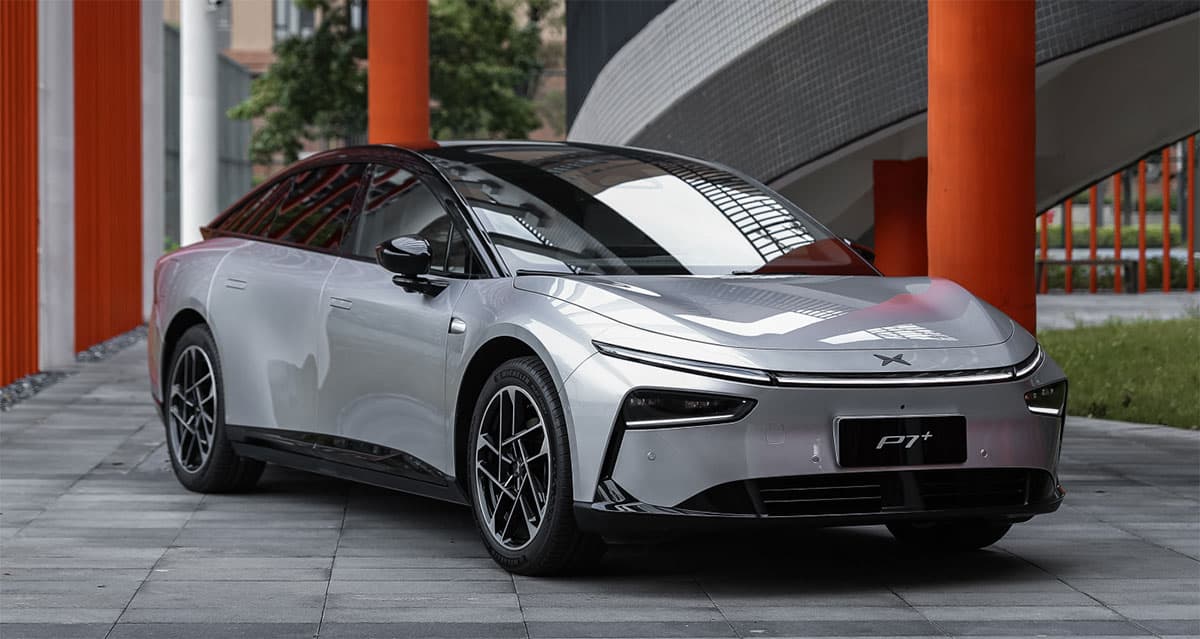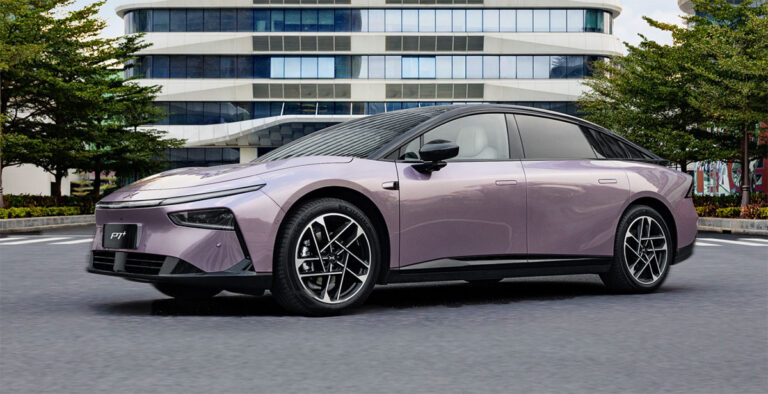Deutsche Bank said the Xpeng P7+ is competitively priced and is longer, taller and has a larger wheelbase compared to its class rivals.

Deutsche Bank raised its monthly sales estimate for the Xpeng (NYSE: XPEV) P7+ by 50 percent, citing the competitive pricing of the new electric sedan.
“The company announced that the 'P7+' received >10,000 non-cancellable unit orders within 12 minutes post its launch, and we now expect a unit sales average of 9,000 per month for the 'P7+' sedan (higher than the market's expectation of 5-7k units per month and our previous assumption of 6,000 units per month),” analyst Wang Bin's team wrote in a research note sent to investors earlier today.
Xpeng launched the P7+ yesterday, with two regular variants starting at RMB 186,800 ($26,140) and RMB 198,800 respectively.
The model also has a limited edition that starts at RMB 218,800 with only 500 available. As of now that variant is sold out.
The P7+'s starting price is RMB 23,000, or 11 percent, lower than its RMB 209,800 starting price when pre-sales began on October 14.
Based on the pre-sale price, Wang's team on October 17 projected average monthly sales of 6,000 units for the P7+, roughly in line with Wall Street's consensus estimate of 5,000-7,000 units per month at the time.
Following the model's official launch, the team said in the research note today that the final selling price is competitive.
The P7+ is longer, taller, and has a larger wheelbase compared to its head-to-head competitors such as the BYD Han EV, Lynk & Co Z10, Xiaomi SU7, Tesla Model 3, and Xpeng P7, the team said.
Given the higher volume assumption, Deutsche Bank lowered its full-year net loss forecast for Xpeng in 2024 by 13.5 percent.
Last year, Xpeng announced an aggressive cost-savings strategy that included a 25 percent reduction in overall vehicle bill-of-materials (BOM) costs and a 50 percent reduction in the cost of autonomous driving hardware, the team noted.
The P7+ is the first product launched under these cost-saving initiatives, and Xpeng guidance calls for a double-digit gross margin for the vehicle, the team said.
Given the successful debut of the P7+, the team expects Xpeng to achieve double-digit vehicle gross margins going forward, as the upcoming new product should benefit from the same 25 percent vehicle BOM cost savings strategy.
Wang's team expects Xpeng to launch six products in 2025, including the G5 compact SUV (code F62), the G7 large SUV (code F01), the H01 ultra-large SUV (code H01), the mi-size Mona SUV, the P9 ultra-large sedan (code E29), and the new-generation P7 sedan.
Looking ahead to 2026, the team expects Xpeng to launch four new products, including a compact Mona SUV, a new-generation G9 large SUV (code E01), a PHEV version of the above-mentioned H01 ultra-large SUV (code G01), and an ultra-large MPV (code X3).
Considering that the ten new products mentioned above are expected to debut in 2025 and 2026, the team now expects Xpeng to sell 400,000 units in 2025, a year-on-year increase of 115 percent.
In 2026, Xpeng's sales are expected to reach 620,000 units, a 55 percent year-on-year increase, the team said.
Earlier this year, Xpeng announced plans to launch 30 new products over the next three years, including new models and facelifts of existing ones.
($1 = RMB 7.1468)
